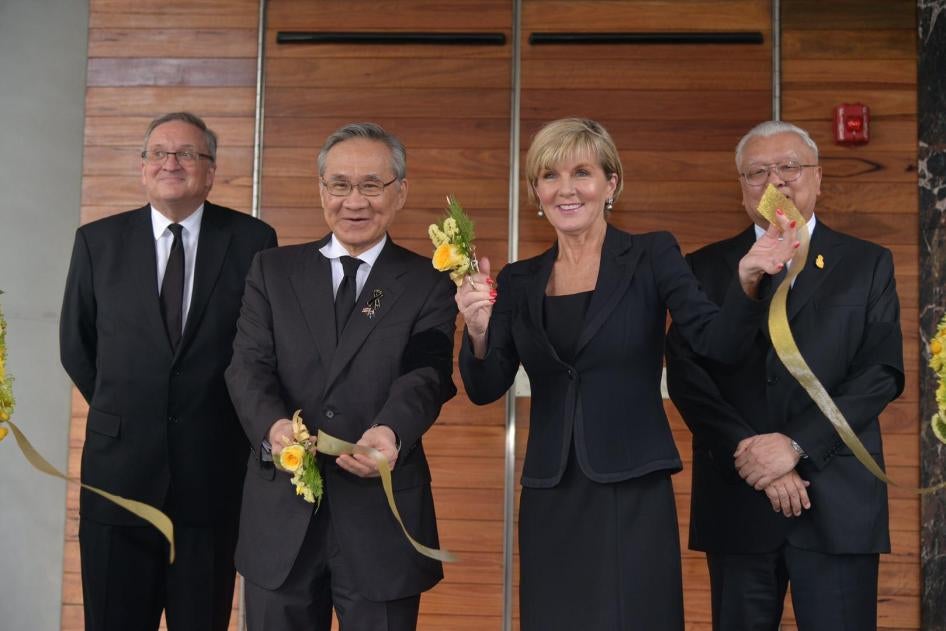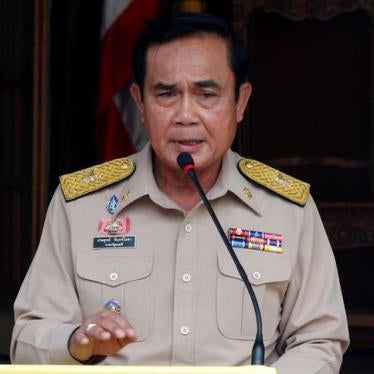(Sydney) – Australia’s Foreign Minister Julie Bishop should press Thailand’s junta leader to end rights repression and ensure a rapid transition to democratic civilian rule during her visit to Bangkok from August 2 to 5, 2017, Human Rights Watch said today. Australia is celebrating its 65th anniversary of diplomatic relations with Thailand, which has been under the repressive rule of the National Council for Peace and Order (NCPO) – led by Prime Minister Gen. Prayut Chan-ocha – for more than three years.
After the May 2014 military coup, Bishop issued a statement on the situation in Thailand which said, “Sustainable political stability is more likely to be found in the restoration of a democratically elected government operating under the rule of law.”
“Regardless of its promises to respect human rights, Thailand’s junta is further putting itself above the law,” said Elaine Pearson, Australia director. “Bishop needs to emphasize Australia’s deep concerns about repressive military rule in Thailand.”
In a letter sent to Bishop on July 26, 2017, Human Rights Watch pointed out that the Thai junta has made no genuine progress toward restoring democratic rule.
As both junta leader and prime minister, General Prayut wields broad and unaccountable powers without any oversight. The new constitution, promulgated on March 6, ensures that NCPO members will not be held accountable for any of the many rights violations committed since taking power. It also strengthens and prolongs military control of the government even after an election that the junta promises to hold in 2018.
The junta’s promised “road map” to return to democratic civilian rule has instead seen Thai authorities severely repress fundamental rights and freedoms that are essential for democratic transition. The NCPO has enforced censorship and ordered media not to criticize military rule.
Authorities have prosecuted hundreds of critics and dissenters with serious criminal offenses, including sedition, for their peaceful expression of opinions. Public gatherings of more than five people and anti-coup activities are prohibited. Thousands have been summoned and pressured to stop making political comments, especially disagreements with the NCPO. Arguing that diverse political opinions are harmful to stability, the junta has frequently censored public discussions about the state of human rights and democracy in Thailand under military rule. Military authorities have the power to hold people in secret detention for up to seven days without charge and interrogate them without access to lawyers or safeguards against mistreatment.
Human Rights Watch urged Bishop to press General Prayut to live up to his own pledges about respecting human rights and restoring civilian democratic institutions. Close diplomatic, political, economic, and sociocultural ties provide Australia with significant leverage to be frank and forthright in raising human rights issues with Thailand.
“Pressure from Australia is urgently needed to help end repression in Thailand,” Pearson said. “Thailand’s junta needs to be told that there will be no return to business as usual until Thailand returns to democratically elected civilian rule and respect for human rights is fully restored.”








